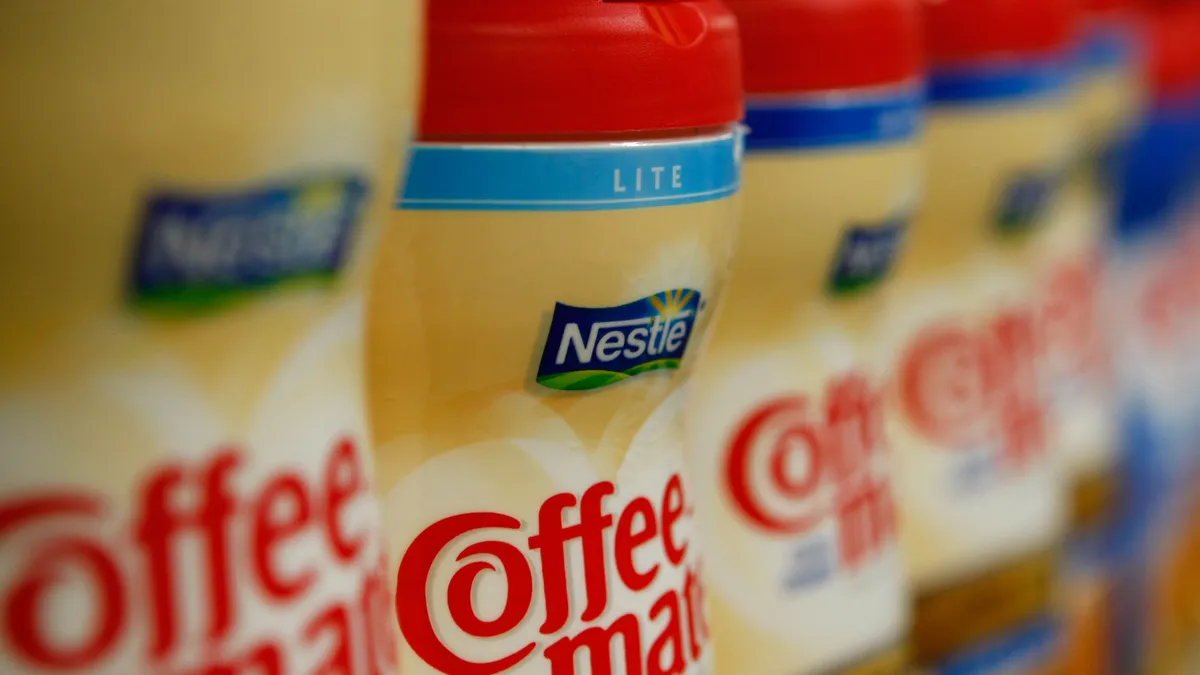Dive Brief:
- Nestlé will ship half of its 2023 global shipping needs using lower-emission fueled vessels with A.P. Moller — Maersk, CMA CGM and Hapag-Lloyd as part of its path to reach net-zero emissions, the company announced in a Dec. 6 news release.
- Under the agreement, Nestlé will ship its products on vessels powered by alternative fuels, including used cooking oil, which is expected to reduce the company’s annual greenhouse gas emissions from shipping by 200,000 metric tons.
- The food and beverage company has the option to extend the carrier agreement into 2024 and beyond.
Dive Insight:
Nestlé has been making strategic decisions to reduce their emissions over the last few years. The CPG has not only made moves toward more sustainable packaging in a bid to improve the millions of pounds of packaging material it uses annually, but has also set a goal to responsibly source coffee and help farmers reduce their carbon emissions.
The CPG has also been utilizing Maersk’s ECO delivery service since 2021, specifically with its water beverages and Nespresso products. Nestlé is also part of Maersk’s pilot to use low-emission rail and electric trucks, according to a press release from the ocean carrier.
“Reaching net zero requires changing many aspects of how we source, make, and distribute our products," Stephanie Hart, EVP and head of operations at Nestlé said in a news release. “The agreements we've signed with our shipping partners will help us cut emissions and immediately reduce our carbon footprint.”
Ocean carriers have been making efforts to lower their carbon emissions. Earlier this month a group of major ocean carriers signed a declaration reiterating their commitment to reduce greenhouse gas emissions in the maritime industry. The carriers, which include Maersk, CMA CGM, MSC, Hapag-Lloyd and Wallenius Wilhelmsen, also called out the International Maritime Organization to establish regulations for the adoption of greener fuels.
“We know this is an interim solution and continue to encourage the development of longer term decarbonization solutions in shipping and distribution,” Hart said.














